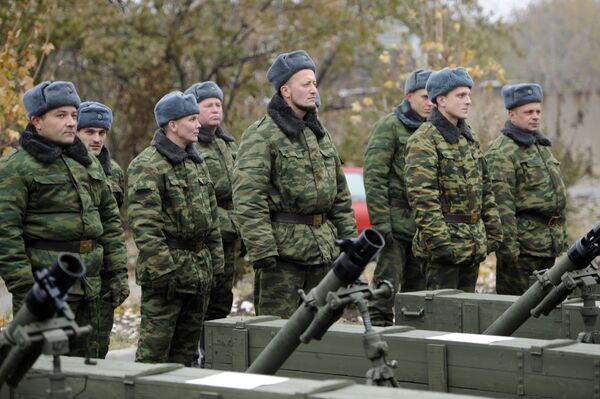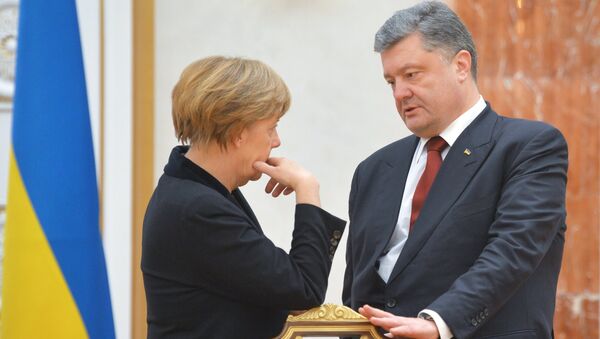According to the newspaper, this skepticism stems from the behavior of Ukrainian politicians, who had earlier played the role of "good students." Le Monde quoted the official as saying that the situation remains the EU's main concern, and "in the short term there is no reason for optimism in the matter."

The official said that the past few years have seen an ever-increasing number of supporters of the normalization of relations with Russia in Europe, something that he said comes amid the Ukrainian side's visible reluctance to comply with the Minsk agreements.
"Fatigue from the Ukrainian issue can quickly turn into fatigue from the Ukrainian partner, who has proven to be unreliable," the official said, adding that "in this vein, the question of anti-Russian sanctions is seen in a different perspective."
One of the main problems pertaining to the Minsk agreements is Ukrainian President Petro Poroshenko's inability to approve the special status of eastern Ukraine's Donbass region. The initiative is being blocked by many Ukrainian lawmakers, according to the Le Monde.
"Poroshenko's hopes to gain a constitutional majority by getting two-thirds of the votes are already seen as unrealistic," the newspaper said.
In April 2014, Ukrainian authorities kicked off a military operation against supporters of Donbass independence in eastern Ukraine. The settlement of the conflict is still being discussed by the Trilateral Contact Group on Ukraine in the Belarusian capital Minsk, which has already adopted three documents which establish guidelines for taking the necessary steps to de-escalate the conflict. The group includes representatives from Russia, Ukraine and the Organization for Security and Cooperation in Europe.




